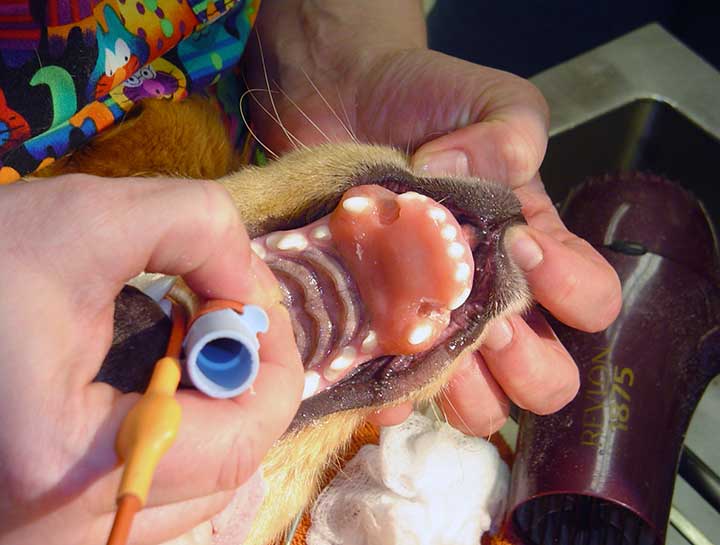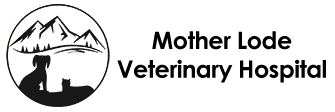Orthodontics
Correcting the positioning of teeth.
Orthodontics is the branch of dentistry that allows veterinarians and dentists to correct malocclusions or malpositions of teeth. Teeth that are malpositioned, crowded together, or rotated can result in rapid periodontal disease, damage to soft tissues like the gingiva or palatal tissue, or cause excessive wear when teeth are hitting teeth.
Malocclusion in dogs can result in overbites, underbites, level bites, and wry bites (the lay term to describe asymmetrical malocclusions or those affecting one side). Many factors can contribute to malocclusions such as genetics, nutrition, trauma, environmental issues, and certain abnormal mechanical forces on the jaw.
Some malocclusions such as underbites may be normal for short-muzzled breeds. Pets that have pain or periodontal disease deserve orthodontic correction to eliminate pain and prevent more serious periodontal disease later. Breeders of show dogs should be aware that the American Kennel Club strictly prohibits any dog that required orthodontic correction to compete in the show ring.
Some corrections may be excluded and need to be discussed with the veterinarian. Sometimes persistent deciduate teeth can result in malocclusion. When the deciduate tooth roots are not properly resorbed as the permanent tooth erupts, both sets of teeth will occur and this can result in the abnormal location of the permanent tooth. If this is suspected, the deciduate tooth should be extracted as soon as the permanent tooth starts to erupt in the same socket. If the deciduate mandibular canine and incisor teeth are removed before 3 months old, this procedure will eliminate the interlock and allow the jaws to grow independently without interference.
Anterior crossbites and level bites can be corrected with a variety of appliances. Base Narrow Canines is a common orthodontic problem wherein the mandibular canines impact the maxilla. In many cases (with the exception of severe underbites) the malocclusion can be corrected with appliances such as the reline splint, a splint that is fabricated at a dental laboratory, or the Mann inclined plane.
Appropriate treatments must be determined on a case-by-case basis. Certain advanced orthodontic systems are not available at our hospital and those patients will be referred.
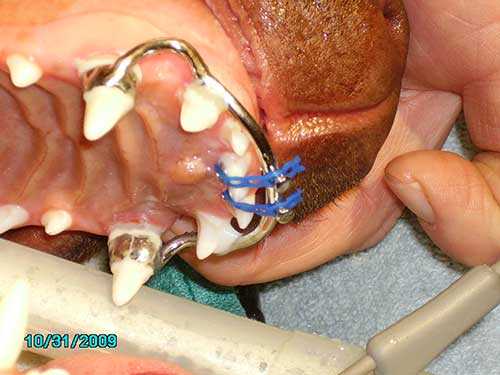
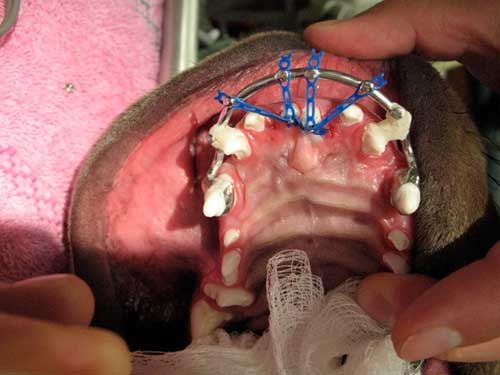
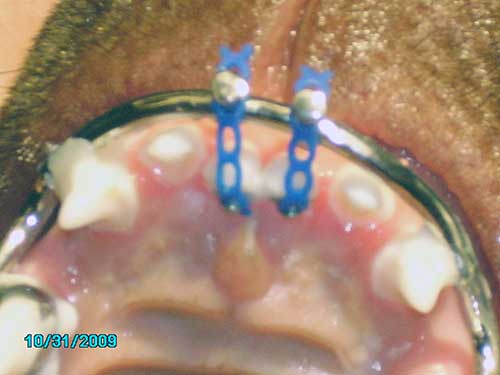
Call us at (530) 272-6651 today to schedule your pet's next dental exam!
